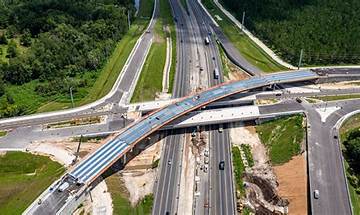Attention | Beijing CDC reminds you that after heavy rainfall, food safety should be "four wants and seven don't"

Since July 29, Beijing has suffered from heavy rainfall, with heavy rain in the whole city and heavy rain in the southwest.
Beijing CDC reminds you that after heavy rainfall, accompanied by high temperature and high humidity weather, intestinal infectious diseases and various food-borne diseases are prone to occur. Citizens and friends should pay attention to food safety, never be careless, do a good job of "four wants and seven don't" and prevent "diseases from entering the mouth".
01
Flooded food-don't eat it!
Food soaked by rain water is easily contaminated by microorganisms in sewage, rotting and deteriorating, and food poisoning is very easy to occur after eating. In order to ensure safety, it is best to discard the flooded food and not eat it.
Pay special attention to the food in the refrigerator. If the refrigerator has been invaded by rain or the power has been cut off, it is best to discard the food.
02
Deteriorated food-don't eat it!
Moldy food is harmful to health. After heavy rainfall, the weather is hot and humid, and food is easy to rot and deteriorate. Rice flour is easy to mildew if it is not stored properly. Eating moldy grain can cause mycotoxin poisoning, often causing gastrointestinal symptoms such as nausea, vomiting, abdominal distension, abdominal pain and occasional diarrhea, and then damage to various organ systems (liver, kidney, nerve and blood) in the body.
In summer, cooked food should not be stored at room temperature for more than 2 hours, and all cooked food and perishable food should be stored in the refrigerator in time. Leftovers must be refrigerated, but don't store them in the refrigerator for more than 3 days. Before eating the next meal, they should be thoroughly heated, and repeated heating should not be more than once. The food should be as clear as possible on the same day, and the food that has been spoiled should not be eaten.
03
Animals with unknown causes of death-don't eat them!
Don't eat meat from chickens, ducks, pigs, cows and other livestock and poultry with unknown causes of death and aquatic products that have died due to rainfall. Animals with unknown causes of death may be contaminated by pathogenic bacteria, which will cause corruption and deterioration in animals and produce toxins, which will cause food poisoning if eaten.
The main symptoms of bacterial food poisoning are gastrointestinal symptoms, such as diarrhea, abdominal pain, nausea, vomiting, and sometimes fever and headache.
04
Food of unknown origin-don't eat it!
Don't eat food from unknown sources, packaged in non-special food containers and without clear food marks.
05
Wild mushrooms-don't eat them!
After the rain, wild mushrooms will grow in large numbers. It is not reliable to identify poisonous mushrooms by traditional simple methods and specific experience. Never eat wild mushrooms at will.
06
Cold salad with poor sanitation-don't eat it!
After heavy rainfall, the sanitary conditions in some areas are poor, cold meat and cold dishes are easy to be polluted in the production process, and they are easy to get sick after eating. It is safest to cook the food thoroughly. Do not wash vegetables and fruits with rain, and clean raw vegetables and fruits with clear water.
07
Raw water-don't drink it!
Do not drink raw water, do not drink unknown or polluted water; Raw water should be boiled and drunk, or bottled water or bottled water that meets the hygiene standards should be selected; Consciously protect the drinking water source and environment, pile up garbage, dump domestic sewage and discharge feces at designated places.
01
It is necessary to strengthen personal hygiene and maintain an optimistic attitude.
Pay attention to hand hygiene, wash your hands before and after meals, use soap or hand sanitizer as much as possible and use running water. Maintain a healthy lifestyle, avoid overwork, add clothes in time and improve your immunity. In addition, people are prone to anxiety, depression, despair and other negative emotions in extreme weather events, which will seriously cause mental illness. We should maintain an optimistic attitude and actively deal with bad emotions.
02
Disinfect tableware in time
If the kitchen utensils and tableware are soaked by water in the home, they should be disinfected before use. The simplest disinfection method is to put the washed tableware into a pot, completely soak it in water for heating, and keep it for more than 15 minutes when the water boils, so as to achieve the purpose of disinfection.
03
It is necessary to strengthen environmental sanitation
After heavy rainfall, mosquitoes, flies, mice and other harmful organisms breed more, and the pathogens they carry can pollute food and water sources, causing food-borne diseases. To prevent flies and rats, insects, pests and other animals from entering the kitchen and touching food, food can be covered or stored in sealed containers, garbage can be covered tightly and regularly removed, and domestic animals should be kept away from food preparation areas.
04
Timely medical treatment
After heavy rainfall, if you have fever, abdominal pain and diarrhea, nausea, vomiting or other unwell symptoms, you must seek medical attention in time, and you should not take antidiarrheal drugs, antibiotics and other drugs without authorization.
Beijing Center for Disease Control and Prevention
Poke at you, always so beautiful.
Declaration: All article resources on this website, unless otherwise specified or labeled, are collected from online resources. If the content on this website infringes on the legitimate rights and interests of the original author, you can contact this website to delete it.






